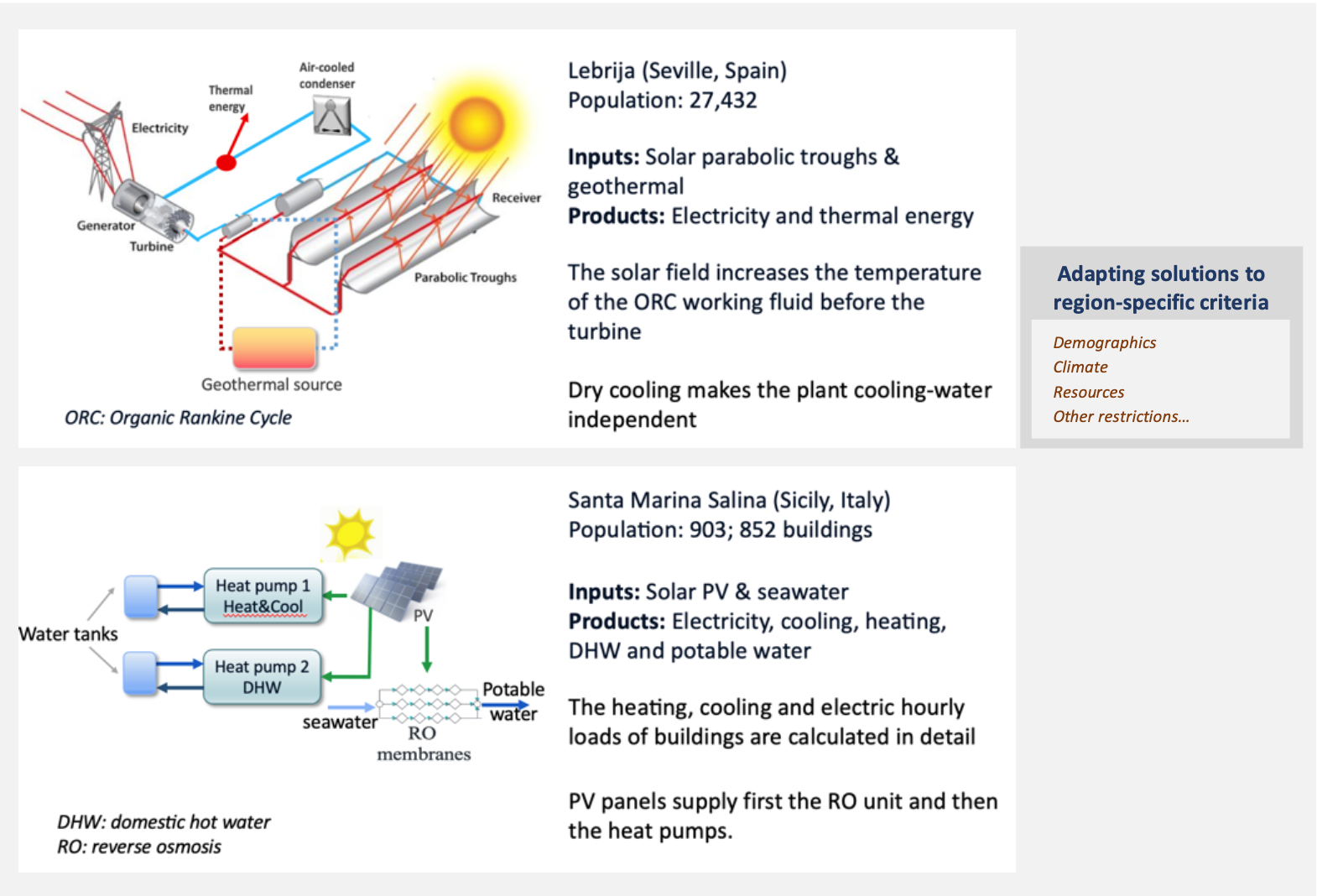Simulation and evaluation of advanced energy conversion systems
To meet global energy sustainability goals, future energy policies must promote a clean-energy economy based on renewable energy resources and advanced, highly-efficient energy systems. In many cases, however, individual clean-energy options present disadvantages in terms of efficiency, cost and operation. In contrast, hybrid energy systems, which employ more than one energy input, increase operating efficiency, energy security and reliability. Meanwhile, polygeneration technologies, i.e., facilities co-generating three or more useful energy products, reduce risks by providing more flexible and consistent operation and can result in cost savings.

This research line includes dynamic simulations of complex plants for the proposal, analysis and optimization of region-specific solutions that sattisfy given local restrictions and requirements. Combinations of energy resources and technologies may include, for example, fossil fuels, RES (solar thermal and PV, wind, geothermal, hydropower), desalination processes, heat pumps, refrigeration processes, electrolysis, fuel cells, wastewater treatment processes and CO2 capture. Principal products studied are power, thermal energy, hydrogen, CO2, water, and salt.